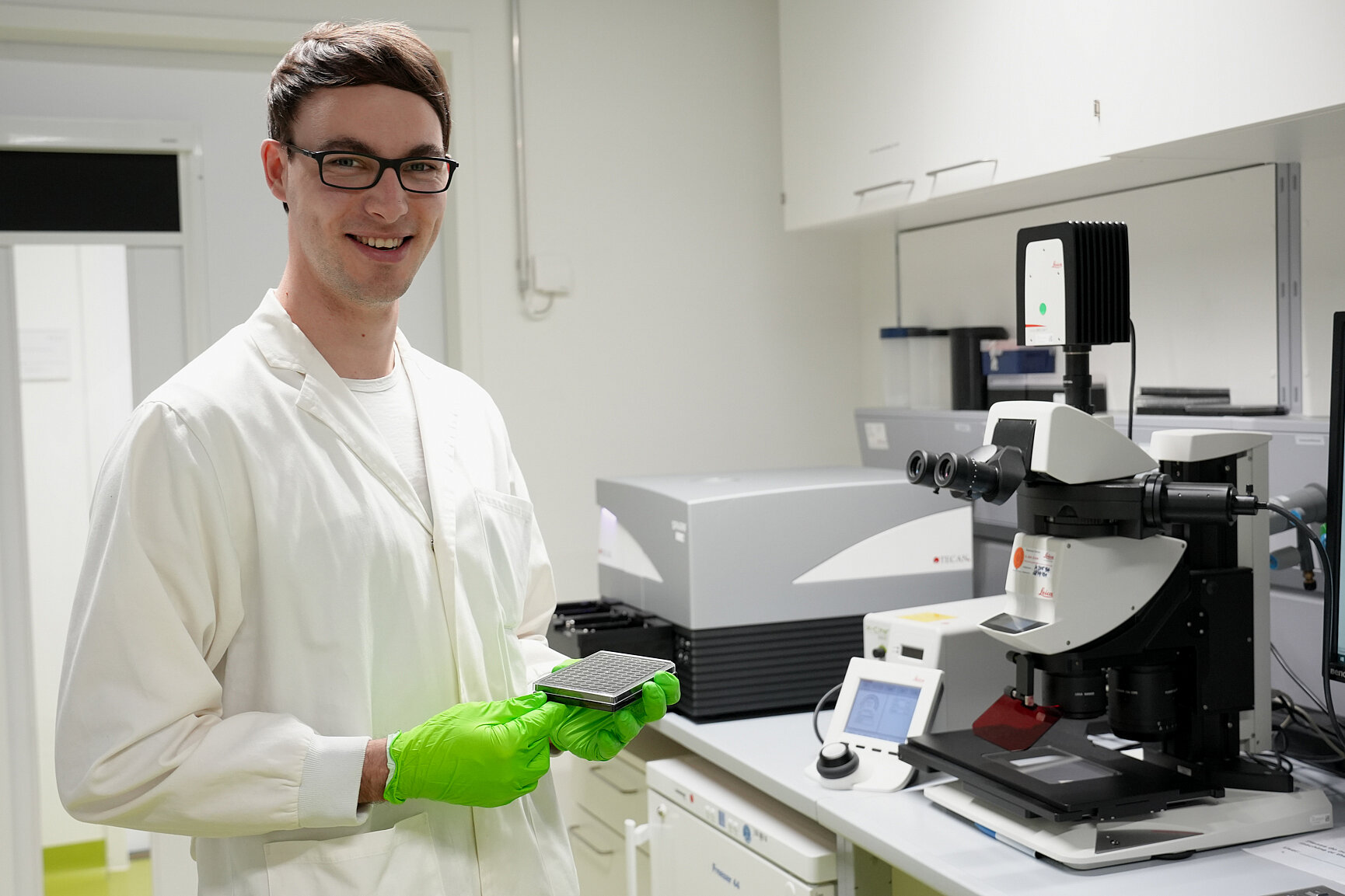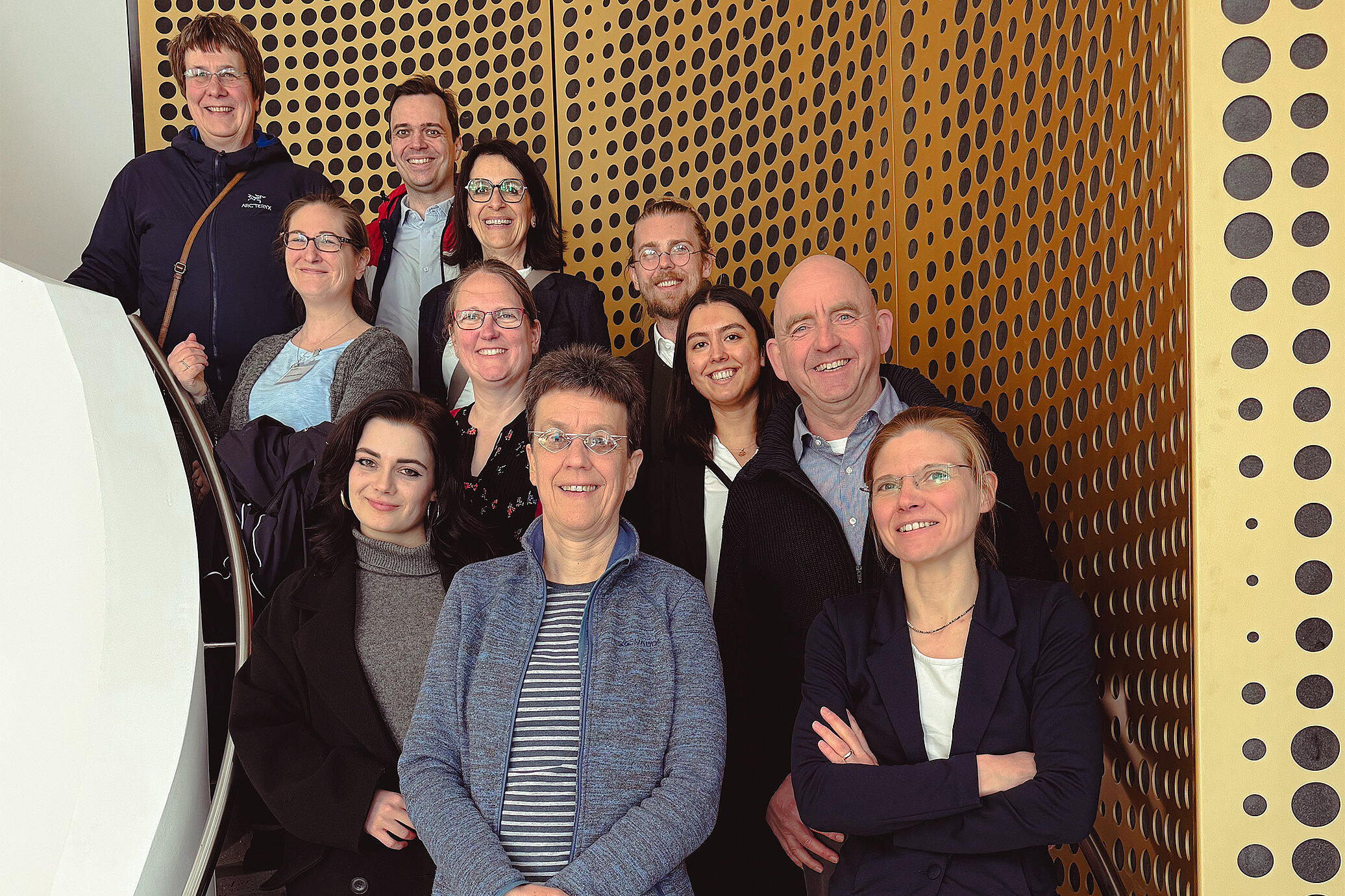
Clinical Bioinformatics (CiiM Group)

Our research
The Clinical Bioinformatics research group focuses on the development and application of computational approaches to enhance our comprehension of infection and aging. They place emphasis on investigating the role of epigenetic modifications in these pathophysiological conditions. This involves analyzing samples from cohort studies through the utilization of whole-genome epigenetic profiling, single-cell transcriptomics technologies, and systems genetics methodologies. The ultimate goal is to develop tailored therapeutic strategies based on detailed molecular stratification of disease sub-entities. This represents a significant advancement towards the realization of individualized medicine.
Our research
The Clinical Bioinformatics research group focuses on the development and application of computational approaches to enhance our comprehension of infection and aging. They place emphasis on investigating the role of epigenetic modifications in these pathophysiological conditions. This involves analyzing samples from cohort studies through the utilization of whole-genome epigenetic profiling, single-cell transcriptomics technologies, and systems genetics methodologies. The ultimate goal is to develop tailored therapeutic strategies based on detailed molecular stratification of disease sub-entities. This represents a significant advancement towards the realization of individualized medicine.
Empowering personalized medicine through data-driven insights and innovative bioinformatics solutions
Cheng-Jian Xu

Dr. Cheng-Jian Xu is a professor in the field of Clinical Bioinformatics. With a Ph.D. in Chemometrics from Central South University, he possesses over two decades of experience in data science. Throughout his career, Dr. Xu has pioneered innovative methods for analyzing complex biological, chemical, and clinical data, unraveling critical insights into genetic variations and their role in disease susceptibility. His research has led to the identification of novel biomarkers for early disease prediction. As a passionate advocate for interdisciplinary research, Dr. Xu continues to push the boundaries of bioinformatics, with a commitment to advancing both scientific knowledge and its real-world applications. His work has not only transformed our understanding of genomics but has also paved the way for personalized medicine and improved patient outcomes.
Selected Publications
Gupta, M. K., Peng, H., Li, Y. & Xu, C.-J. The role of DNA methylation in personalized medicine for immune-related diseases. Pharmacology & Therapeutics 108508 (2023). DOI: 10.1016/j.pharmthera.2023.108508
Oltmanns, C., Liu, Z., Mischke, J., Tauwaldt, J., Mekonnen, Y. A., Urbanek-Quaing, M., Debarry, J., Maasoumy, B., Wedemeyer, H., Kraft, A. R. M., Xu, C.-J*. & Cornberg*, M. Reverse inflammaging: Long-term effects of HCV cure on biological age. Journal of Hepatology 78, 90–98 (2023). DOI: 10.1016/j.jhep.2022.08.042
Rabold K., Zoodsma M., Grondman I., Kuijpers, Y,… , Xu CJ*. & Netea-Maier R. T*, Reprogramming of myeloid cells and their progenitors in patients with non-medullary thyroid carcinoma. Nature Communications 13, 6149 (2022). DOI: 10.1038/s41467-022-33907-4
van Breugel M, Qi C. Xu Zl, … Chen Wei, Bont L, Bønnelykke K, Celedón JC, Koppelman GH and Xu CJ, Nasal DNA methylation at three CpG sites predicts childhood allergic disease. Nature Communications 13, 7415 (2022). DOI: 10.1038/s41467-022-35088-6
Xu CJ, Söderhäll C, Bustamante M, Baiz N, Gruzieva O, et.al DNA methylation in childhood asthma: an epigenome-wide meta-analysis. Lancet Respir Med, 6, 379 (2018). DOI: 10.1016/S2213-2600(18)30052-3
A complete list of Cheng-Jian Xu's publications can be found on Google Scholar.


